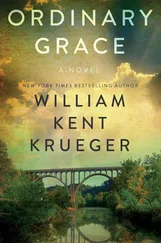William Boyd
Ordinary Thunderstorms
Ordinary thunderstorms have the capacity to transform themselves into multi-cell storms of ever growing complexity. Such multi-cell storms display a marked increase in severity and their lifetime can be extended by a factor often or more. The grandfather of all thunderstorms, however, is the super-cell thunderstorm. It should be noted that even ordinary thunderstorms are capable of mutating into super-cell storms. These storms subside very slowly.
Storm Dynamics and Hail Cascades by L.D. Sax and W.S. Dutton
LET US START WITH THE RIVER — ALL THINGS BEGIN WITH THE RIVER AND we shall probably end there, no doubt — but let’s wait and see how we go. Soon, in a minute or two, a young man will come and stand by the river’s edge, here at Chelsea Bridge, in London.
There he is — look — stepping hesitantly down from a taxi, paying the driver, gazing around him, unthinkingly, glancing over at the bright water (it’s a flood tide and the river is unusually high). He’s a tall, pale-faced young man, early thirties, even-featured with tired eyes, his short dark hair neatly cut and edged as if fresh from the barber. He is new to the city, a stranger, and his name is Adam Kindred. He has just been interviewed for a job and feels like seeing the river (the interview having been the usual tense encounter, with a lot at stake), answering a vague desire to ‘get some air’. The recent interview explains why, beneath his expensive trenchcoat, he is wearing a charcoal-grey suit, a maroon tie with a new white shirt and why he’s carrying a glossy solid-looking black briefcase with heavy brass locks and corner trim. He crosses the road, having no idea how his life is about to change in the next few hours — massively, irrevocably — no idea at all.
♦
Adam walked over to the high stone balustrade that curved the roadway into Chelsea Bridge and, leaning on it, looked down at the Thames. The tide was high and still coming in, he saw, the normal flow of water reversed, flotsam moving surprisingly quickly upstream, heading inland, as if the sea were dumping its rubbish in the river rather than the usual, other way round. Adam strolled up the bridge’s wide walkway heading for midstream, his gaze sweeping from the four chimneys of Battersea Power Station (one blurred with a cross-hatching of scaffolding) to the west, past the gold fmial of the Peace Pagoda towards the two chimneys of Lots Road Power Station. The plane trees in Battersea Park, on the far bank, were still some way from full leaf — only the horse chestnuts were precociously, densely green. Early May in London…He turned and looked back at the Chelsea shore: more trees — he’d forgotten how leafy some parts of London were, how positively bosky. The roofs of the grand, red brick, riverine Victorian mansion blocks rose above the level of the Embankment’s avenue of planes. How high? Sixty feet? Eighty? Apart from the susurrus of ceaseless traffic, the occasional klaxon and whooping siren, he didn’t feel as if he were in the middle of a huge city at all: the trees, the quiet force of the surging, tidal river beneath his feet, that special luminescence that a body of water throws off, made him grow calmer — he’d been right to come to the river — odd how these instincts mysteriously drive you, he thought.
He walked back, his eye held by a clearly defined, attenuated triangle of waste ground to the west side of Chelsea Bridge, formed by the bridge itself, the water’s edge and the four lanes of the Embankment. It was bulked out with vegetation, dense with long grass and thick unpruned bushes and trees. He thought, idly, that such a patch of land must be worth a tidy fortune in this location, even a thin long triangle of waste ground, and he built, in his mind’s eye, a three-storey wedge of a dozen bijou, balconied apartments. Then he saw that in order to achieve this he’d have to cut down a huge fig tree, close to the bridge — decades old, he reckoned, drawing nearer to it, its big shiny leaves still growing, stiffly fresh. A venerable fig tree by the Thames, he thought: strange — how had it been planted there and what happened to the fruit? He conjured up a vision of a plate of Parma ham and halved fresh figs. Where had he eaten that? On his honeymoon in Portofmo with Alexa? Or earlier? On one of his student holidays, perhaps…It was a mistake to think of Alexa, he realised, his new mood of calm replaced at once by one of sadness and anger, so he concentrated instead on the small surges of hunger he was experiencing, and felt, thinking of the figs and Parma ham, a sudden need for Italian food: Italian food of a simple, honest, basic sort — insalata tricolore, pasta alle vongole, scallopine al limone, torta di nonna. That would do nicely.
He wandered into Chelsea and almost immediately in the quiet streets behind the Royal Hospital found, to his considerable astonishment, an Italian restaurant — as if he were in a fairy tale. There it was, tucked under yellow awnings badged with a Venetian lion, in a narrow street of white stucco and beige-brick terraced houses — it seemed an anomaly, a fantasy. No shops, no pub, no other restaurant in sight — how had it managed to establish itself here amongst the residents? Adam looked at his watch—6.20—a bit early to eat but he was genuinely hungry now and he could see there were already a few other customers inside. Then a smiling, tanned man came to the door and held it open for him, urging, “Come in, sir, come in, yes, we are open, come in, come in.” This man took his coat from him, hung it on a peg and ushered him past the small bar through to the light L-shaped room, shouting genial instructions and rebukes at the other waiters, as if Adam were his most cherished regular and was being inconvenienced by their inefficiency in some way.
He sat Adam down at a table for two with his back to the street outside. He offered to look after Adam’s briefcase but Adam decided it would stay with him as he took the proffered menu and glanced around. Eight tourists — four men, four women — sat at a large round table, eating silently, all dressed in blue with identical blue tote bags at their feet, and there was another solitary man sitting two tables away along from him, who had taken his spectacles off and was dabbing his face with a tissue. He looked agitated, ill at ease in some way, and he glanced over as he replaced his spectacles. As their eyes met the man gave that inclination of the head, the small smile of acknowledgement — the solidarity of the solitary diner — that says I am not sad or lonely, this is something that I have happily chosen to do, just like you. He had a couple of folders and other papers spread on the table in front of him. Adam smiled back.
Adam ate the house salad — spinach, bacon, shaved parmesan and a creamy dressing — and was halfway through his scallopine al vitello (green beans, roast potatoes on the side) when the other solitary diner leant over and asked him if he knew the exact time. His accent was American, his English flawless. Adam told him—6.52—the man carefully adjusted his watch and they inevitably began to talk. The man introduced himself as Dr Philip Wang. Adam reciprocated and supplied the information that this was his first trip to London since he had been a child. Dr Wang confirmed that he too knew very little of the city. He lived and worked in Oxford — paying only short, infrequent visits to London, a day or two at a time, when he had to see patients taking part in a research project he was running. Adam said he’d come to London from America, was applying for a job here, wanting to ‘relocate’, to come back home, as it were.
Читать дальше












